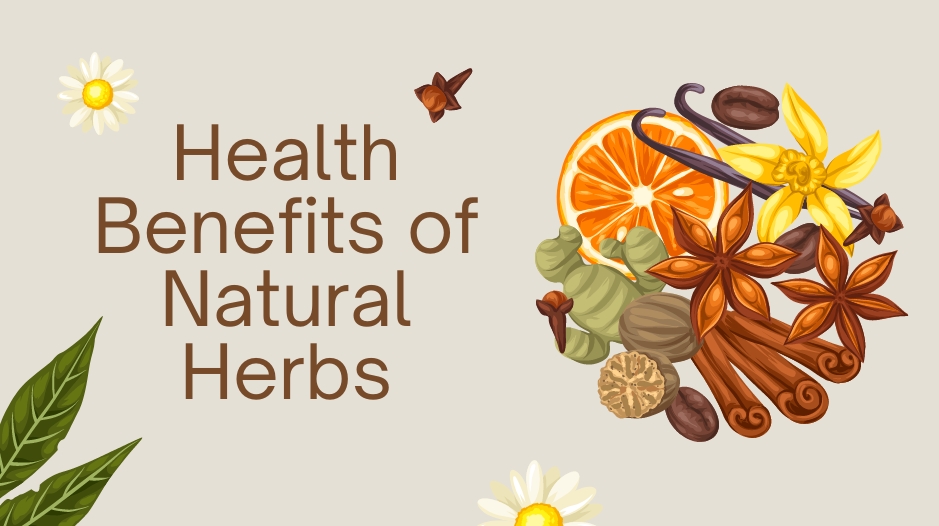blog
Health Benefits of Natural Herbs and How to Use Them

Health Benefits of Natural Herbs and How to Use Them
In recent years, there has been a significant shift towards natural remedies and holistic health practices. Among these, the use of natural herbs has gained immense popularity due to their wide array of health benefits and versatility in usage. Understanding the health benefits and proper usage of natural herbs can greatly enhance your well-being and add a fresh dimension to your culinary experiences.
Benefits of Natural Herbs
Natural herbs offer a plethora of health benefits, often without the side effects associated with synthetic medications. They are rich in essential nutrients, antioxidants, and anti-inflammatory compounds that support overall health. Let’s delve into some specific herbs—mint, anise, and moringa—and explore their unique health benefits and uses.
Mint: A Refreshing Healer
Health Benefits of Mint Mint is not only known for its refreshing aroma and taste but also for its numerous health benefits. It aids digestion, alleviates headaches, and can relieve symptoms of irritable bowel syndrome (IBS). Mint is also known for its antimicrobial properties, which help in maintaining oral health.
Practical Uses and Recipes Mint can be used in various forms, such as fresh leaves, dried leaves, or essential oil. It can be added to salads, smoothies, teas, and desserts. A popular way to enjoy mint is by brewing mint tea, which is soothing and aids digestion.
Historical and Cultural Significance Historically, mint has been valued for its medicinal properties since ancient times. It was used by the Greeks and Romans for treating digestive issues and as a breath freshener. Mint also holds a significant place in various cultural cuisines around the world.
Anise: The Sweet Spice
Health Benefits of Anise Anise is a sweet, aromatic herb known for its digestive and anti-inflammatory properties. It helps alleviate bloating, indigestion, and colic in infants. Anise is also beneficial for respiratory health as it acts as an expectorant and relieves coughs.
Practical Uses and Recipes Anise can be used in both whole and ground forms. It is commonly added to baked goods, teas, and savory dishes. A popular recipe is anise tea, which can be made by steeping anise seeds in boiling water, offering a sweet and soothing beverage.
Historical and Cultural Significance Anise has been used since ancient times in various cultures for its medicinal and culinary properties. It was highly regarded in ancient Egypt and Greece, where it was used to treat digestive issues and as a flavoring agent in food.
Moringa: The Miracle Tree
Health Benefits of Moringa Moringa, often referred to as the “miracle tree,” is packed with vitamins, minerals, and antioxidants. It supports immune function, improves bone health, and has anti-inflammatory properties. Moringa is also known for its ability to regulate blood sugar levels and promote heart health.
Practical Uses and Recipes Moringa leaves can be consumed fresh, dried, or in powder form. They can be added to smoothies, soups, and stews. Moringa tea is another popular way to consume this nutrient-dense herb, providing a boost of energy and well-being.
Historical and Cultural Significance Moringa has been used for centuries in traditional medicine, particularly in India and Africa. It is valued for its nutritional content and its ability to thrive in harsh climates, making it a crucial food source in many regions.
Incorporating Natural Herbs into Daily Life
Tips for Selecting and Storing Herbs When selecting herbs, opt for fresh, vibrant leaves and store them in a cool, dry place to maintain their potency. Dried herbs should be kept in airtight containers away from light and moisture.
Creative Ways to Include Herbs in Meals Herbs can be incorporated into meals in various creative ways. Add them to salads, soups, stews, and smoothies to enhance flavor and nutrition. Experiment with herb-infused oils and vinegars for a unique twist.
Precautions and Considerations While natural herbs are generally safe, it is important to use them in moderation and be aware of any potential allergies or interactions with medications. Consult a healthcare provider if you have any concerns.
Conclusion
Natural herbs offer a wealth of health benefits and can be easily incorporated into your daily routine. By understanding their properties and uses, you can harness the power of these natural remedies to enhance your health and well-being. Explore the world of herbs, and let them add a refreshing and healthy touch to your life.

